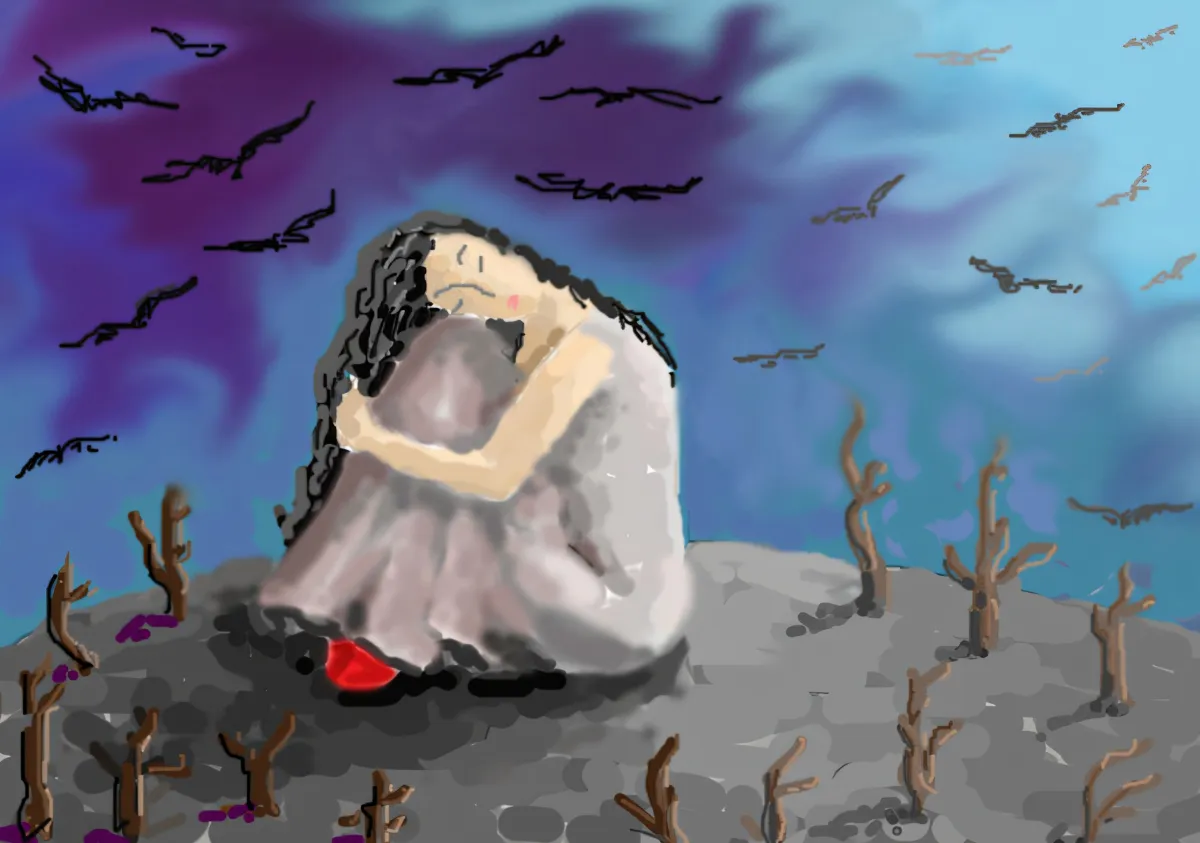How Practicing Self Compassion Helped Me Improve My Mental Health
It was 1980, on Valentine’s Day, that I became diagnosed as a juvenile diabetic type 1. I was only 5 years old. It was a life-altering diagnosis and the end of my childhood innocence. I had to learn how to give my own shots of insulin and deal with both high and low blood sugar difficulties.
Low blood sugar reactions, happen when there is not enough sugar in the bloodstream because of too much insulin given. They cause me to become confused and shaky and it is a life-threatening situation if juice or sugar is not given immediately. High blood sugars, on the other hand, are equally bad and over time can cause amputations of limbs, kidney issues, or even blindness.
My parents, at the time of diagnosis, thought that I needed to do a sport so that I would not lose my limbs to diabetic complications. My dad signed me up to learn to skate at Kerrisdale Arena and it is where my love of skating started. It wasn’t long before I was wrapped up heavily in the competitive figure skating circle of life.
I practiced for hours and fell many times in an attempt to land new jumps so I could compete at a high level of skating.
Figure skating, being a subjective sport, relies on judges to determine the rankings of the competitors. I believe that over time as a result of my disordered thinking of being judged continuously and my desperation of trying to advance in my ranking, I looked at myself to try to fix my faults to gain the competitive edge.
Unfortunately, all I accomplished was that I learned to be too self-critical. I thought the judges would look at how you behaved, what you wore, facial expressions, and how your body looked and they were all factors in how one would place in rankings. I dwelt on my negative attributes daily and gave myself constant self-criticism.
According to Dr. Aaron T.Beck, from the University of Pennsylvania, the creator of Cognitive Behavioural Therapy, depression can be caused by negative thinking. Therefore, spending a lot of time in a state of negative self-reflection as I did can and did lead to an altered state of mood.
To make matters worse severe depression, if not treated over time, can cause a shift into psychosis which makes a person unable to tell what is real and not real while in that state.
This is exactly what happened to me. I got sick with psychosis in 2006 after suffering unknowingly from depression for many years. At the time leading up to the diagnosis and after already completing my university degree in communications,I was in a school that was training me for medical transcription and I was under a lot of stress which put further strain on my brain.
This mental illness devastated me because of many factors. Not only was I humiliated to have a mental illness because of the stigma around mental health issues but I also felt unlovable and rejected by society.
Psychosis is a serious mental illness and is treatable with proper medication and the medication brings the sufferer back into reality.
As long as the medication is taken at the appropriate dosage the state of being disconnected from society is rectified.
However, all you hear in the news are stories of people who are violent with mental illness, and violence in mental illness is actually quite rare. Stigma remains.
I was brought under the careful watch of a psychiatrist and with this medication and talk therapy(cognitive behavioral therapy)I was told and shown that I was actually very hard on myself. This was the turning point.
I needed to change and changing is very hard to do. It takes practice. I started to look at myself as imperfect beauty. I am beautiful because of the flaws that I have. Not ugly because of my flaws. After retraining my brain to think in this manner, by writing in my journal daily, I found that relationships were easier to maintain and my confidence in myself grew.
I also found that allowing myself to make mistakes frequently without judging myself helped as well.
It wasn’t long before I noticed that my mood was improving. My mood was further helped with an antidepressant but the real benefit is from the positive self-compassion I have for myself now.

Opinions and Perspectives
I appreciate how the author explains the connection between physical and mental health challenges.
The transformation described in this article gives hope to others on similar journeys.
This really highlights the importance of mental health awareness and support.
Managing chronic illness while pursuing competitive sports takes incredible dedication.
It's important to remember that mental health recovery looks different for everyone.
The transformation from seeing flaws as ugly to seeing them as beautiful is powerful.
I can relate to feeling like you need to be perfect in everything you do.
The detail about writing in a journal really stuck with me. Such a simple but powerful tool.
The author's resilience is inspiring. Managing all these challenges takes incredible strength.
It's interesting how something meant to help with physical health affected mental health.
The impact of stigma on recovery is real. We need to do better as a society.
I think more people need to hear about the reality of living with multiple health conditions.
It's encouraging to hear that recovery is possible with the right support and treatment.
I never thought about how being judged in sports could affect someone's whole mindset.
The connection between negative thinking and depression is so important to understand.
Learning to accept ourselves as we are is such a crucial part of mental health recovery.
The pressure to be perfect in competitive sports can be overwhelming. I've been there.
I appreciate how the article addresses both physical and mental health challenges.
Managing multiple health conditions must require incredible strength and resilience.
It's refreshing to see someone discuss both the benefits and challenges of competitive sports.
Sometimes the things we love can hurt us if we're not careful with our approach to them.
I love how figure skating started as a way to manage diabetes but became a passion, despite its challenges.
The author's journey reminds me that recovery isn't linear. It takes time and patience.
Being diagnosed with a chronic illness as a child must be incredibly difficult to process.
This story perfectly illustrates how mental and physical health are interconnected.
I'm curious about how others practice self-compassion in their daily lives. Any tips?
The progression from self-criticism to depression to psychosis is scary but important to understand.
Actually, I think sports can be great for mental health when approached with the right mindset and support.
I found myself nodding along when reading about the constant self-criticism. It becomes such a habit.
The author's experience shows how childhood experiences can shape our adult mental health in unexpected ways.
It's important to note that medication played a role in recovery. Sometimes we need both medical and therapeutic support.
Self-compassion is harder than it sounds. I've been trying for years and still catch myself being overly critical.
Managing diabetes alone would be challenging enough, let alone adding competitive sports and mental health struggles.
I wonder how many other athletes struggle with similar issues but never speak up about it.
The way the author describes self-compassion as a practice rather than a destination really resonates with me.
Does anyone else find it fascinating how the brain can shift from depression to psychosis? The mind is incredibly complex.
I think it's brave to discuss psychosis so openly. We need more conversations about serious mental health conditions.
The detail about medical transcription training adding stress makes sense. Sometimes we don't realize we're at our limit until we break.
This reminds me of my own journey with perfectionism. It's exhausting trying to meet impossible standards.
Not sure I agree with the parents' approach. Pushing a child into sports right after a diabetes diagnosis seems overwhelming.
The combination of physical and mental health challenges really shows how interconnected our wellbeing is.
I've always wondered about the psychological impact of subjective sports like figure skating on young athletes.
Thank you for sharing this vulnerable story. It helps others feel less alone in their struggles.
Writing in a journal seems like such a simple solution but I can see how it could help reshape thinking patterns.
The link between depression and psychosis was eye-opening. I had no idea untreated depression could lead to such serious consequences.
I disagree that competitive sports necessarily lead to negative self-image. Many athletes thrive under pressure and judgment.
The author's perspective on imperfect beauty is something we should all embrace. Nobody's perfect, and that's what makes us unique.
I agree about the stigma of mental illness in media. The news really does tend to focus on negative stories rather than recovery and success.
It's remarkable how the author managed both diabetes and competitive skating. That must have required incredible discipline.
Learning to be self-compassionate is definitely a journey. I'm still working on it myself.
The stigma around mental health issues is still so prevalent today. We need more stories like this to help break down those barriers.
While I understand the author's journey, I think competitive sports can actually build confidence rather than tear it down. It really depends on the individual and their support system.
The part about cognitive behavioral therapy really caught my attention. I've been considering trying it myself.
I find it interesting that figure skating was initially chosen to help with diabetes management but ended up contributing to mental health challenges.
What struck me most was how the author transformed their perspective about flaws being part of their beauty. It's such a powerful mindset shift.
The connection between competitive figure skating and mental health is fascinating. I never considered how being constantly judged could affect someone's self-image so deeply.
I appreciate the author sharing their journey with type 1 diabetes. It must have been incredibly challenging to deal with that at such a young age.
This article really resonates with me. I've struggled with self-criticism too and it's amazing how much impact negative self-talk can have on our mental health.
